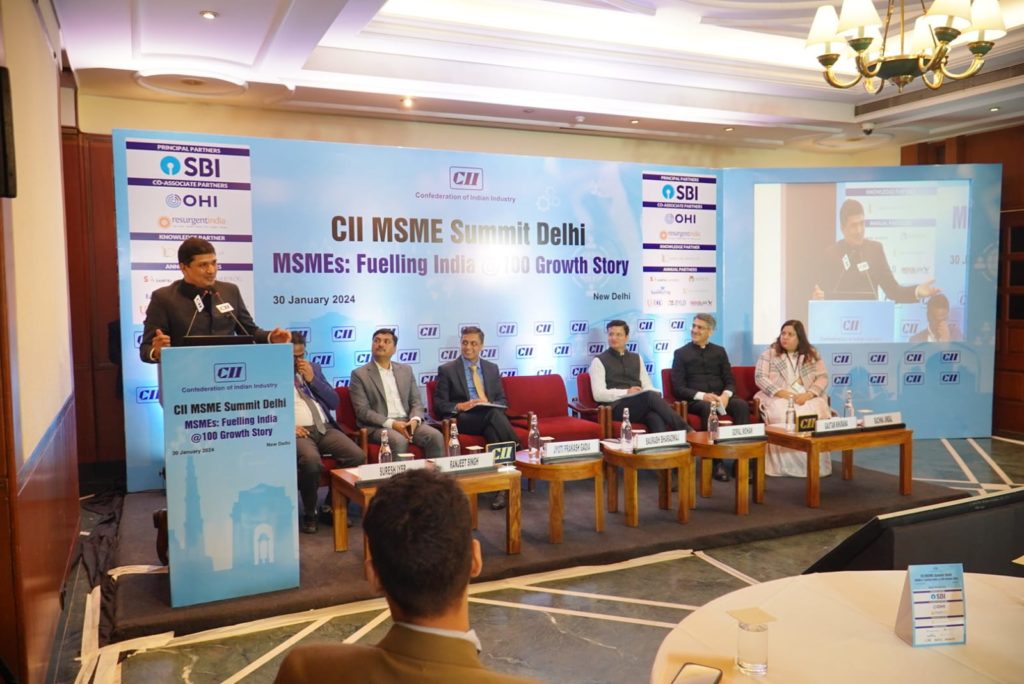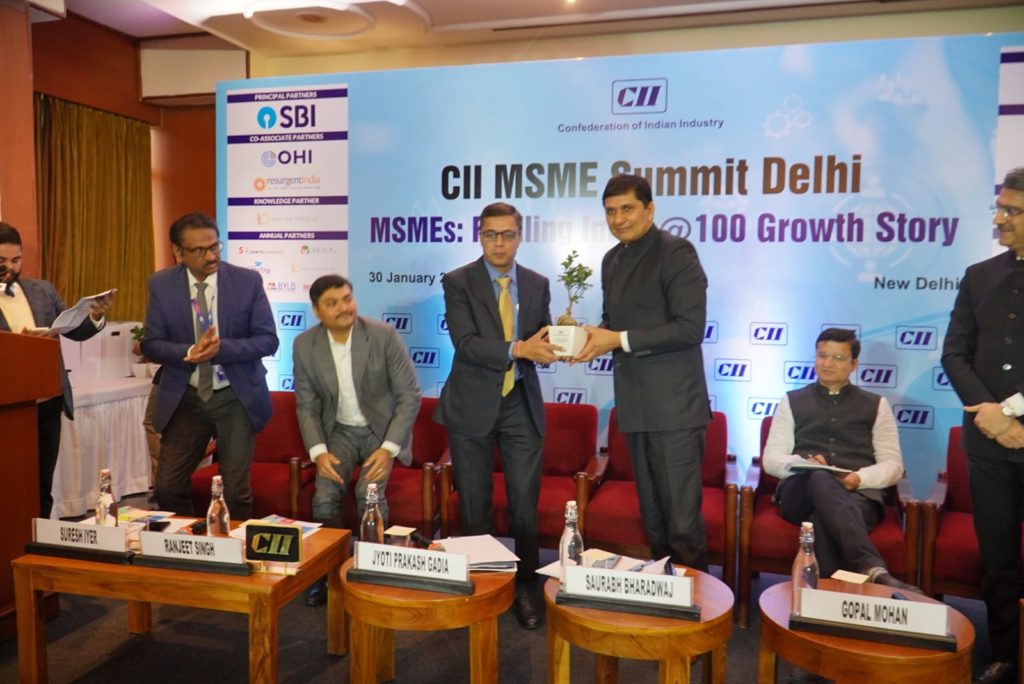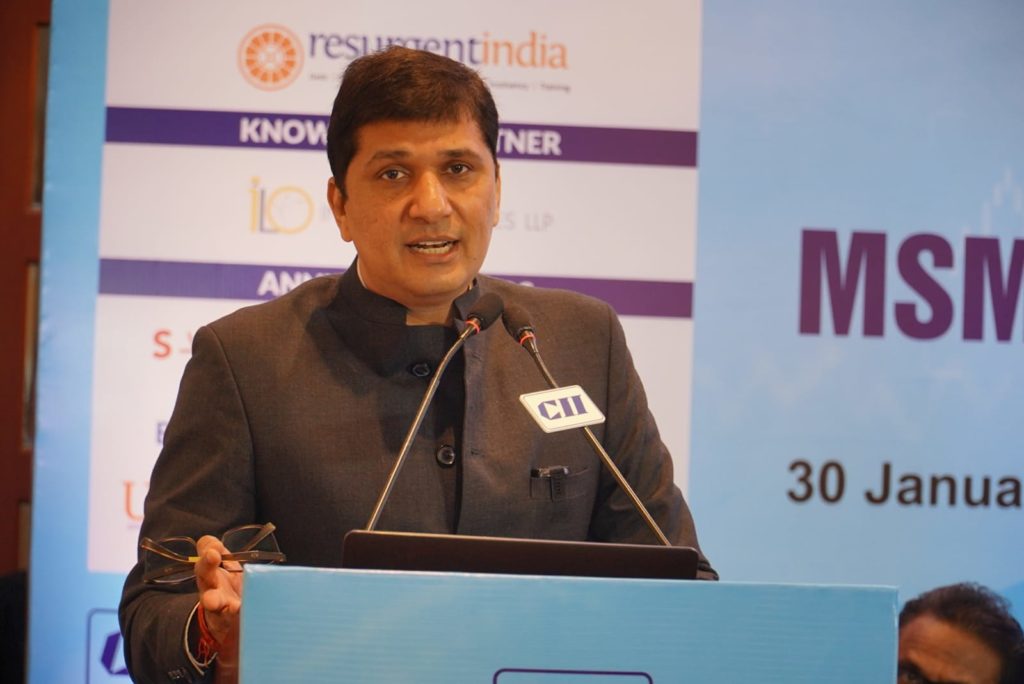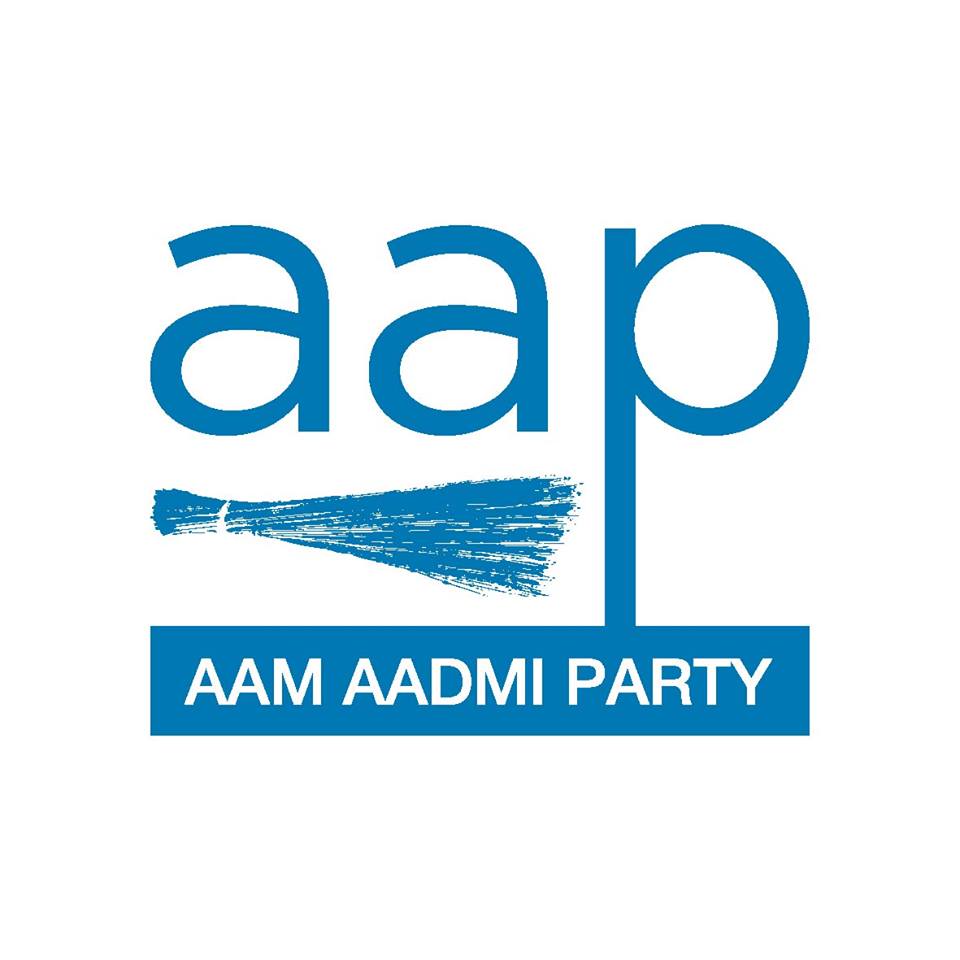On Tuesday morning, the Confederation of Indian Micro Small and Medium Enterprises (CIMSME) Summit was organized at the India Habitat Center in New Delhi. Delhi’s Industries Minister Shri Saurabh Bharadwaj, graced the event as the chief guest. Various industrialists from different sectors of Delhi, along with officials from various departments of the Delhi Ministry of Industry, also participated in the program.

Addressing the gathering, Industries Minister Shri Saurabh Bharadwaj stated that Delhi has various government institutions to run the state machinery. There are numerous powers that come under the jurisdiction of the central government and others under the Delhi government. Many functions are managed by municipal corporations. This unique structure sets Delhi apart from other states in the country. “Being the capital of the country, Delhi attracts significant attention from the judiciary. The frequent recourse to courts regarding government-related matters often leads to obstacles in the functioning of the government. Consequently, both the public and the government suffer losses,” he added.

Minister Saurabh Bharadwaj stated that due to the interference of different government institutions in Delhi’s governance, the development of the city has suffered. The lack of coordination among government bodies has hindered their effectiveness, evident in the residential and industrial markets in Delhi. As a result, the required number of residential apartments in Delhi at the DDA level could not be constructed. Residential colonies were not developed, leading people to arrange for their stay in unauthorized colonies.
“Today, in Delhi, almost more than half the population resides in unauthorized colonies. This outcome is a consequence of the fact that where DDA failed to meet the housing demands, people took matters into their own hands and constructed unauthorized colonies,” the Delhi Industries Minister said.

Similarly, in the context of non-conforming industrial areas in Delhi, Minister Shri Saurabh Bharadwaj provided information. He mentioned that based on an estimate, almost half of all industrial areas in Delhi still fall under non-conforming industrial areas. There are approximately 51,000 industrial units in these areas, employing more than 15 lakh people. “Due to the lack of construction of industrial areas in Delhi according to DDA’s developmental level, people created small industrial areas on agricultural and residential lands for business purposes. As a result, the development of these industrial areas has not been achieved, and the government cannot facilitate their growth due to regulations against constructing industrial areas on agricultural or residential lands,” the Minister expressed.
Minister Shri Saurabh Bharadwaj emphasized that since these are non-conforming industrial areas, they cannot be eliminated. These small industrial areas play a crucial role in providing livelihoods to thousands of families in Delhi. Moreover, the products manufactured in these small industrial areas are widely used at a large scale in Delhi and other states, contributing significantly to the economy of both Delhi and the country. The government is engaged in continuous discussions with small-scale industrialists in these non-conforming industrial areas to convert them into conforming industrial areas.
He mentioned that according to DDA regulations, industrial units located in these non-conforming industrial areas will have to pay a conversion charge to transform them into conforming industrial areas. Since these are small industrial areas with relatively small industrial units that have not yet developed on a large scale, the Delhi government has decided that 90% of the required amount for converting all these non-conforming industrial areas into conforming industrial areas will be borne by the Delhi government, and only 10% of the amount will be collected from the industrial units in these areas.
The Industries Minister explained that the reason behind collecting this 10% amount from industrial units is to ensure the participation of industrialists in all these areas in the entire process. The Delhi government wants the industrialists in these industrial areas to be stakeholders in this entire initiative.
In the meeting, Minister Saurabh Bharadwaj highlighted the steps taken by the Delhi government to simplify and streamline Delhi’s industries. Regarding the initiatives being undertaken by the Delhi government to establish new industries and make it easier for the youth, he mentioned two crucial steps that the Delhi government will soon take:
- Startup Policy
- Cloud Kitchen
The first important initiative that the Delhi government is undertaking is the Startup Policy. Under this policy, the Delhi government will provide various facilities to the youth, such as mentorship, funding, lease rental reimbursement, IPR Grant, exhibition support, scholarships etc. who aspire to establish their businesses, through financial means and other mediums. This initiative aims to empower the youth with diverse business experiences or innovative ideas to establish their ventures. Minister Saurabh Bharadwaj informed that the Cabinet has approved this Startup Policy, and it will soon be implemented.
The second significant task that the Delhi government is set to accomplish is the Cloud Kitchen Policy. Under this policy, the Delhi government will work towards establishing the entire food delivery system as a recognized industry, which is currently not officially acknowledged by the government.
Minister Saurabh Bharadwaj also revealed that along with these two significant tasks, the Delhi government is in the process of constructing two major industrial areas in Delhi. The first one is the establishment of a technology park on 147 acres of land in Rani Khera. Similarly, the Delhi government is constructing a large industrial area named Electronic City in Baprola. This industrial area is conveniently located just 20 minutes away from Indira Gandhi Airport.

